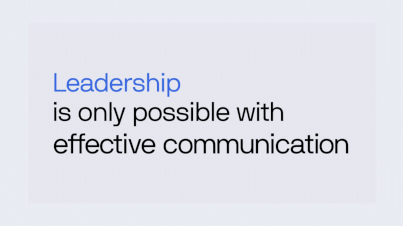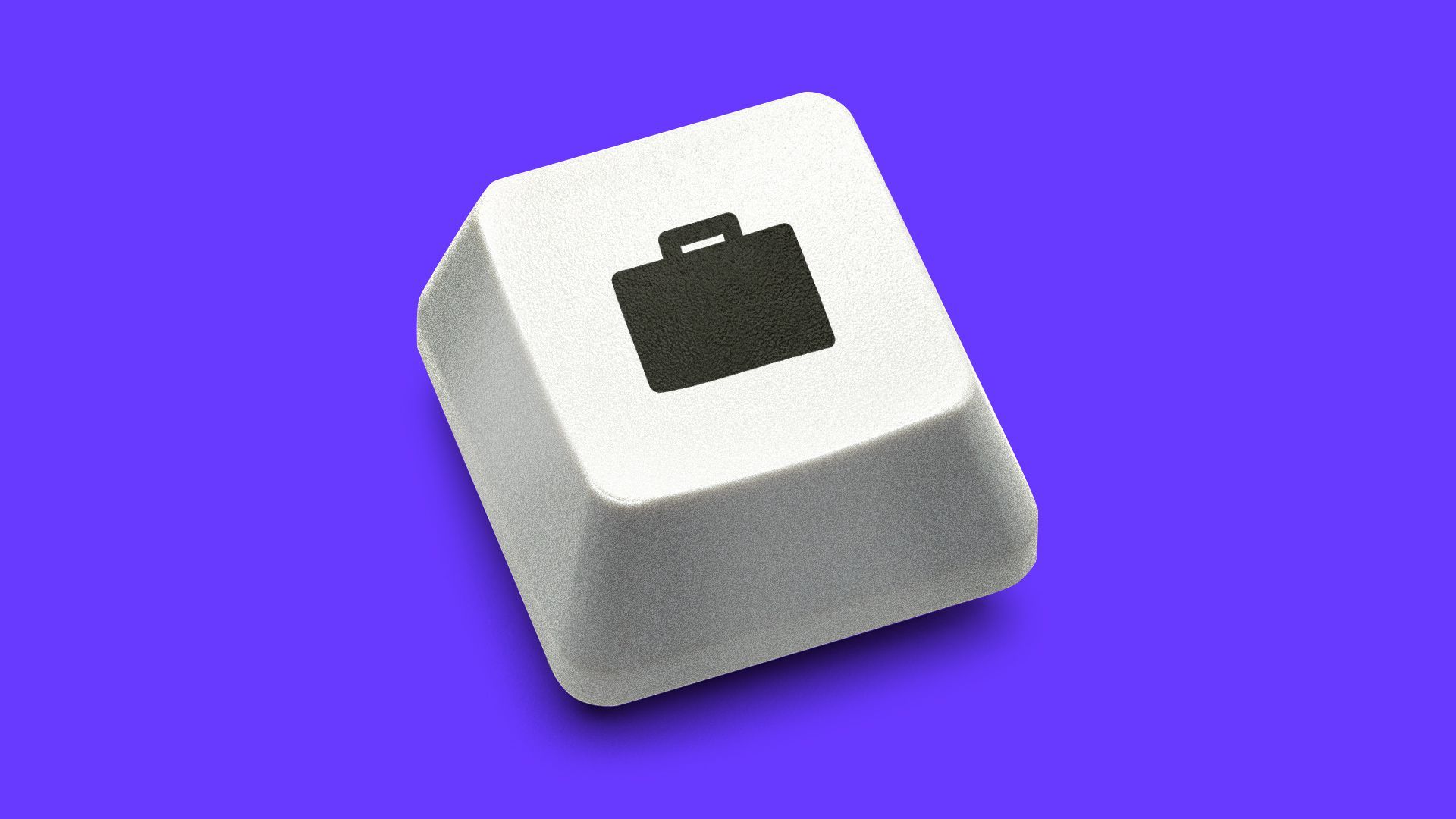| | | | | | | | | | | Axios What's Next | | By Jennifer A. Kingson, Joann Muller and Alex Fitzpatrick · Aug 16, 2022 | | Is your company looking out for your mental health? There's a new initiative to get more execs thinking about workers' well-being, Jennifer reports today. Today's Smart Brevity count: 1,166 words ... 4½ minutes. | | | | | | 1 big thing: CEOs' new mental health road map |  | | | Illustration: Sarah Grillo/Axios | | | | Led by an A-list of C-suite executives, a new nonprofit is developing a playbook to guide companies in supporting employees' mental health, Jennifer A. Kingson reports. Why it matters: Recognizing that burnout from the pandemic has even reached the corner office, Project Healthy Minds is trying to reduce the stigma of mental illness by getting CEOs to talk openly about their struggles — and to enact meaningful policies. Driving the news: Project Healthy Minds is building what it calls the "first direct-to-consumer digital mental health marketplace" — a one-stop shop for finding a crisis hotline, a psychiatrist, a substance abuse treatment program or other relevant help. - "We want to build an Expedia.com for mental health services," says Phillip Schermer, founder and CEO of Project Healthy Minds, who previously helped guide mental health strategy at BlackRock.
- Another goal is to create national standards to guide companies' mental health efforts.
Who's on board: Supporters include Bill Kolb, chairman and former CEO of McCann Worldgroup; Jeff Raider, co-founder of Warby Parker and Harry's; Jacqui Canney, chief people officer at ServiceNow; and Brian Offutt, chief workforce innovation and operations officer at Weber Shandwick. What they're saying: During the pandemic, "you had employees absolutely on the edge," said Kolb, adding that several McCann employees recently died by suicide. - Rattled by those deaths, Kolb personally called the employee assistance program (EAP) hotline to test his company's safeguards — and was kept on hold for 12 minutes.
- When a human picked up, "the first thing I had to do was not talk about the fact that I'm about to kill myself, but tell my employee ID number," Kolb recalled.
- After that, "we started doing things really, really rapidly" to help, like offering the Headspace app and "Wellness Wednesdays," where guest speakers talk about mental health hygiene.
- The company also started training all workers to be "mental health advocates," and to be able to recognize emotional distress in colleagues and others.
"No matter how much brainpower, time or effort you put on this, there's no silver bullet — no quick fix," Kolb tells Axios. Where it stands: McCann Worldgroup hired Project Healthy Minds to build a mental health training program for its executive board and senior executives. - Kolb "thought it was important that leaders get trained on these topics," said Schermer, noting that the curriculum was built in collaboration with the National Network of Depression Centers.
What's next: Project Healthy Minds plans to compile a robust library of research on best practices in mental health programs, plus develop metrics by which companies can be assessed. - There's a need for "standardized measurements" that prospective employees can look at, Schermer said.
- Investors who evaluate companies by the yardstick of "ESG" — environmental, social and governance practices — could use a firm's mental health policies as a way to size up its "social" performance.
The bottom line: "We're in the bottom of the first inning of a long game in reimagining what it means for companies to support employee mental health," Schermer says. Share this story. |     | | | | | | 2. Robotaxis take Vegas |  | | | Lyft and Motional are developing robotaxi service in Las Vegas. Photo courtesy of Motional | | | | Lyft is adding a new fleet of electric, autonomous vehicles (AVs) to its ride-hailing network in Las Vegas, bringing it one step closer to offering a full robotaxi service, Joann Muller reports. Why it matters: It's the latest milestone in the partnership between Lyft and Motional, one of a half-dozen leading autonomous tech companies. - Rather than designing its own self-driving cars, Lyft is partnering with other companies.
Details: Motional's new AV is based on Hyundai's electric Ioniq 5, customized for driverless ride-hail operation. - It's equipped with more than 30 sensors — cameras, radar and lidar — and an onboard computer system that helps the vehicle see and understand the world around it.
- Riders can unlock the doors via the Lyft app and start a ride using an intuitive passenger display in the rear seat.
- If needed, they can also use the screen to contact remote agents.
Of note: For now, two vehicle operators will be present in the front seat, but passengers can get a feel for what the robotaxi experience will be like. What's next: The service is set to become fully driverless in 2023, and will then scale to other cities. Share this story. |     | | | | | | 3. The emerging "Extreme Heat Belt" |  Note: Shaded counties are those that will, on average, have 0.5 days or more at or above a 125F° heat index in 2053; Data: First Street Foundation; Map: Axios Visuals An "extreme heat belt" is developing from Texas to Illinois, according to a new study, as Andrew Freedman writes in Axios Generate. Why it matters: The report, by the nonprofit First Street Foundation, concludes that the heat index in affected communities could reach 125°F at least one day a year by 2053. - The findings are a stark reminder that huge swaths of the U.S. will have to grapple with intense heat in the not-too-distant future.
Details: The analysis shows that the number of Americans currently exposed to "extreme heat" — defined as having a maximum heat index of greater than 125°F — is 8 million. - But anticipated warming during the next three decades will cause that number to balloon to 107 million people.
- The new report is unique for examining current and future heat risks down to the property level across the country.
What's next: Communities are innovating to reduce the impacts of extreme heat and put in place better heat action plans, among other climate resilience steps. Read the rest. |     | | | | | | A message from Axios | | A better way to communicate with stakeholders | | |  | | | | A difficult truth: You could have the smartest people, strongest strategy, endless capital — but your team is set up to fail without clear communication. That's why we built Axios HQ, a powerful tool that untangles uncertainty and streamlines communications. See how we use it at Axios | | | | | | 4. Teens use the internet "almost constantly" |  Data: Pew Research Center; Note: The 2014/2015 survey did not ask about TikTok, which launched globally in 2018, or YouTube; Chart: Nicki Camberg/Axios Nearly half of U.S. teens (46%) say they use the internet "almost constantly," according to a new poll, Axios' Sara Fischer reports. Why it matters: Today's teens don't balance their real-world lives with their virtual experiences — they blend them. State of play: The internet has changed dramatically in the past few years, creating new opportunities and risks for teens. - Today's teens, who nearly all (97%) say they use the internet daily, are visual communicators, and have more tools at their disposal for self-expression.
- Algorithms that prioritize virality make it easier for teens to discover new interests and ideas.
Yes, but: Constant connection also means that real-world problems — like bullying, harassment and abuse — can be a bigger part of teens' lives. Read the rest. |     | | | | | | 5. ICYMI: Scoring worker productivity |  | | | Illustration: Aïda Amer/Axios | | | | How closely should companies track workers? That's the question at the heart of a fascinating New York Times deep dive published over the weekend. Why it matters: Employers have wanted to keep a close eye on their workforce since time eternal. - That desire is now being fed by new tools, like software that tracks whether someone is at their desk.
- But closely monitored workers told the Times that the practice is "demoralizing" and "toxic," and some question whether the resulting data is even useful.
The takeaway: "The most urgent complaint, spanning industries and incomes, is that the working world's new clocks are just wrong: inept at capturing offline activity, unreliable at assessing hard-to-quantify tasks and prone to undermining the work itself." Alex's thought bubble: My managing philosophy is this: As long as you're doing what's expected of you, I don't need to know whether you're at your desk every minute. Go for a walk — it's good for you! |     | | | | | | A message from Axios | | A better way to communicate with stakeholders | | |  | | | | A difficult truth: You could have the smartest people, strongest strategy, endless capital — but your team is set up to fail without clear communication. That's why we built Axios HQ, a powerful tool that untangles uncertainty and streamlines communications. See how we use it at Axios | | | | A hearty thanks to What's Next copy editor Amy Stern. Was this email forwarded to you? Get your daily dose of What's Next magic by signing up here for our free newsletter. |  | | Are you a fan of this email format? It's called Smart Brevity®. Over 300 orgs use it — in a tool called Axios HQ — to drive productivity with clearer workplace communications. | | | | | | Axios thanks our partners for supporting our newsletters. If you're interested in advertising, learn more here.
Sponsorship has no influence on editorial content. Axios, 3100 Clarendon Blvd, Arlington VA 22201 | | | You received this email because you signed up for newsletters from Axios.
Change your preferences or unsubscribe here. | | | Was this email forwarded to you?
Sign up now to get Axios in your inbox. | | | | Follow Axios on social media:    | | | | | |










No comments:
Post a Comment